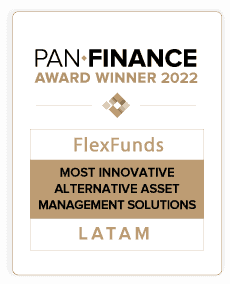Today there is no shortage of challenges for the asset management industry, whether rate fluctuations, evolving client preferences, or advancing technology. From that scenario, the following question arises: What does the future hold for asset management firms?
Weighing the constant amid persistent change
When change is a constant presence, organizational culture can be a powerful source of continuity and connectivity that determines how companies behave in both good times and bad. Corporate culture should guide all an organization’s activities, from talent acquisition and development to research and investment processes.
Asset management firms are aware that recent events in the world require them to have an organizational culture that is open to diverse perspectives, sudden change, and big data management. Their leaders must foster innovation in all parts of the business and devise a creative approach to problem-solving. These actions are keys to achieving and maintaining success in a rapidly evolving industry where the playing field can constantly change.
As in all organizations, investment management firms must assume that clients are their most important asset, and that approach must permeate all aspects of the organization. If a client does not have sufficient trust in their financial advisor, the potential depth of the relationship is limited. Therefore, each firm should foster the attributes fundamental to building client trust, with transparency, humility, accountability, integrity, collaboration, and innovation as keys to the relationship.
Raise the level of innovation
Diversity of talents and thinking drives innovation. It can magnify the impact on people by creating better and more effective ways of doing things, from investment research to portfolio construction to trading to client service.
Management in handling big data is a big focus for asset management firms. The industry has become convinced that data science will be an integral part of developing information advantages in the coming years. While investing in data may not guarantee success, managing it well would be a key ingredient in the performance of financial services firms as the industry moves forward in the coming years.
Digital properties are another imperative for the asset management firm of the future. The importance of these connections will only grow as client preferences evolve in terms of how, when, and where they access information. Customers may be in front of an office computer or, increasingly, on a mobile device. But the demand is the same: they want as much real-time information as possible. They must have access to data that is clear, available in a variety of formats, and tailored to their needs.
Investing in digital technology and innovation can also generate efficiencies that allow asset managers to spend more time working with clients on their specific investment needs. Streamlining financial firms’ administrative processes and improving collaboration will enable advisors to focus on the customers, delivering more personalized and human service much more efficiently.
Respond to the demand for responsible investment strategies (ESG)
One of the significant growth opportunities for asset management firms is responsible investment strategies.
The demand for solutions that integrate environmental, social, and governance considerations continues to grow. Many investors are looking to go beyond financial performance and invest with a sustainable, high-impact purpose.
Acknowledging the need for responsible investment products should be a priority for asset managers. To do this, they must emphasize understanding incredibly complex dynamics, such as climate change, and applying them when analyzing risks and opportunities for industries and individual issuers.
Developing new ways to strengthen relationships
Another skill that will underpin future success for asset managers will be building closer relationships with clients. Investment tools can support this relational enhancement to help investors refine portfolio construction or better understand underlying performance factors. For example, an advisor spending time on business trips with their client to research investment opportunities in person will allow them to explore new markets and options and deepen the existing relationship. Another example might be joint training programs, which can bring benefits to both asset managers and investors.
Overall, the main variables on which asset management firms can focus their efforts to be successful in the future will be adaptability to change, innovation, and stronger client relationships.







